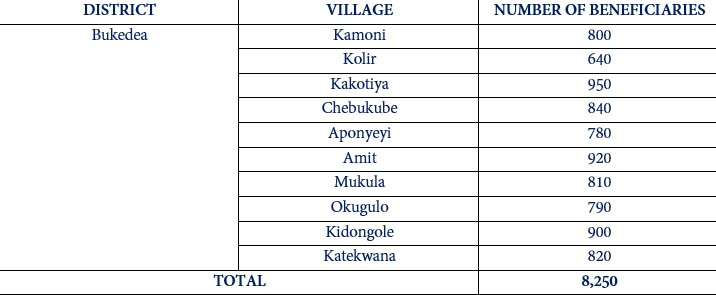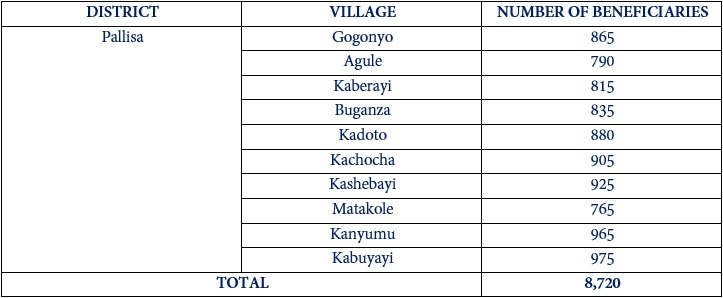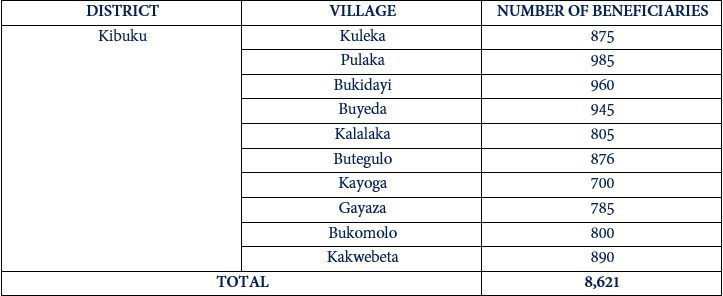WASH (Water, Sanitation, & Hygiene) Complete Report in Uganda
Overview
WF-Aid would like to express its gratitude to the Mohsin & Fauzia
Jaffer Foundation USA for their unwavering support for our
projects and for assisting humanity at large. In this instance, the
Foundation has contributed just shy of USD $21,000 towards our
WASH (water, sanitation and hygiene) initiative in Uganda, as part
of their wider commitment to WF-AID’s Ali Asghar Water Appeal.
The initiative involved the installation of water wells and a repair &
maintenance programme for boreholes across three districts in Eastern
Uganda, where access to clean, safe drinking water was severely limited.
Our ground agency conducted a thorough needs analysis which found that
a lack of adequate infrastructure made access to clean water extremely
difficult in the scouted areas and had forced the local populace to fetch
water from unprotected wells, streams, ponds and still water – which had
been causing several waterborne diseases.
They had also noted the severity of the risks posed to girls who fetch water,
based on the existing gender roles in this part of the developing world
where the burden of responsibility of fetching water is on women and girls.
Furthermore, they had found that the average time consumed for fetching
water is 4-5 hours per trip, with 2-3 trips per day not being uncommon.
Having clean water readily available in a village results in the time
consumed in searching for water being converted to other more
productive activities, especially in the case of girls having more time in
education and in income generating activities. There are also numerous
indirect benefits to a water programme such as this, including the increase
of healthiness amongst the population (due to a reduced chance of
contaminating waterborne diseases) as well as boosting agricultural
activities.
The following report will provide an evaluation of the impact of the project
with beneficiary statistics and key information, as well as case studies.
Water Well Installation
One aspect of the project involved digging and installing HDW (hand-dug
wells) in nine villages across the three districts of Bukedea, Kibuku and
Pallisa, in Eastern Uganda. These areas were targeted through the needs
analysis due to inadequate government funding for villages with low
infrastructure levels and their remoteness.
Each well built serves at least 100 different families, totalling 1,280 families
for all nine villages, which the table below summarises:
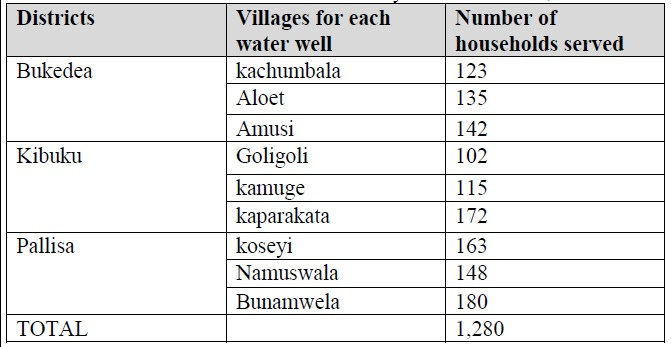
The cost of digging one well and installing a hand pump was $1,200, with all
nine coming to $10,800. This means that the provision of clean, drinking
water to a family through HDW’s on average came to $8.44!
HDW’s supplement the existing water sources, such as local wells and
boreholes, and are a traditional method of obtaining groundwater in the
developing world. The wells are lined with concrete cylinders to prevent
pollution or disintegration, as well as a drainage channel to prevent waste
water seeping back into the well.
Upon receipt of the funds, the project underwent the following stages:
1. Project initiation meeting with stakeholders and preparation of the work plan.
2. Site visit and inspection of the boreholes to determine the parts to be installed for repair, and assessment of areas to install the HDWs.
3. Selection of vendors and procurement of equipment.
4. Selection of local contractors to implement the project.
5. Implementation.
6. Monitoring, supervision, and training of village health teams on sanitation, usage, and maintenance.
7. Compilation of report.
As noted on point 4, the project involved training water supply caretakers
and village health teams per parish. These trained teams form a steering
committee on water facilities and health-related problems in the local
community. This enhances the sustainability element of the project, which
builds the capacity of village health teams and households in water
maintenance, sanitation and good hygiene practices.
The below table denotes individual beneficiary statistics per HDW:
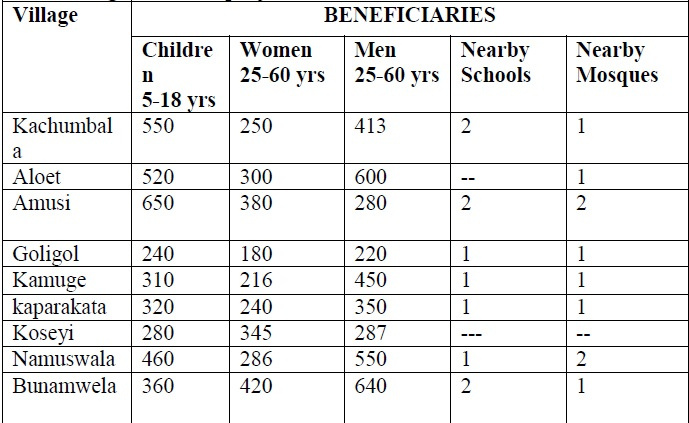
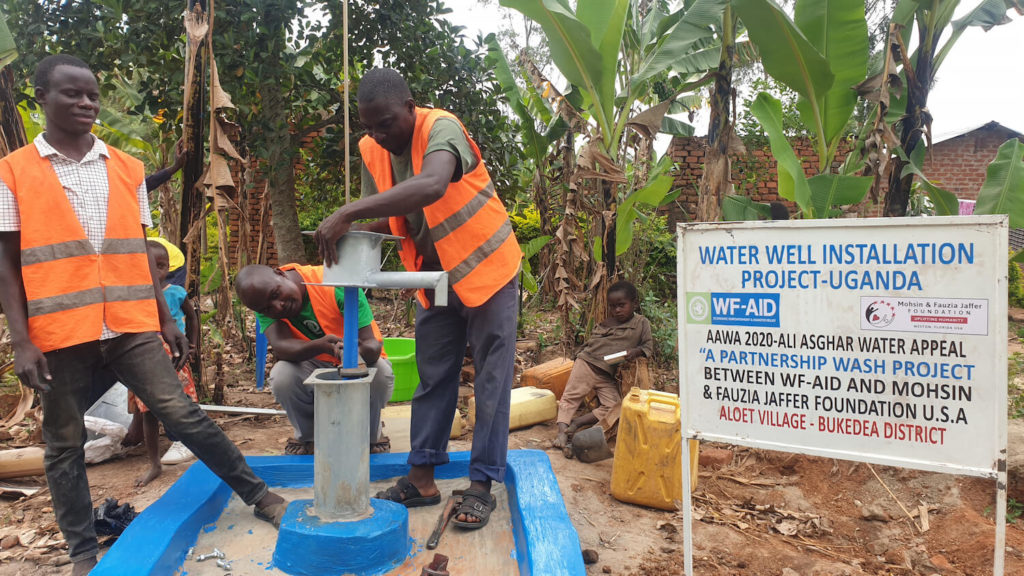
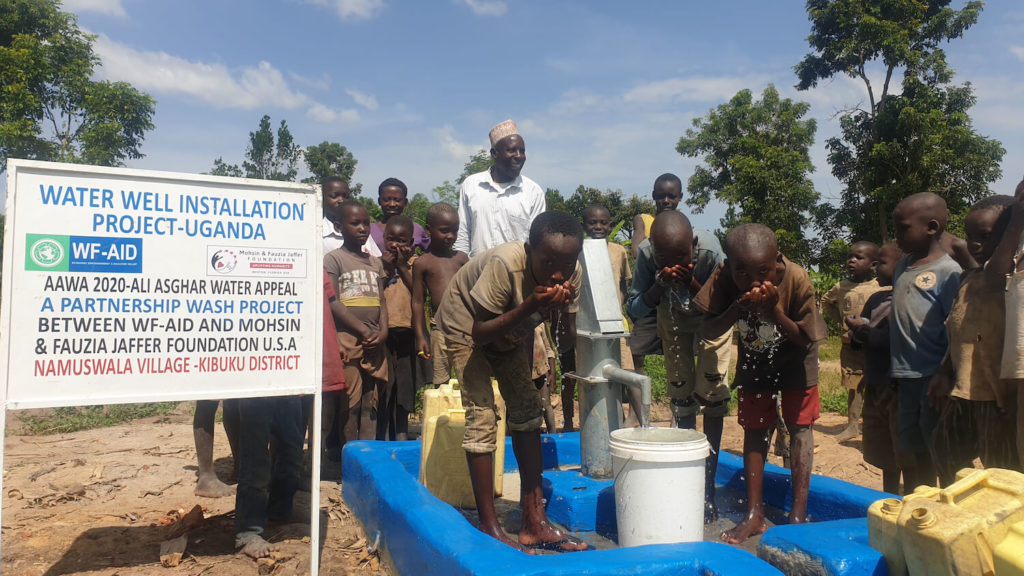
Borehole Repair & Maintenance
The other aspect of this project involved repairing 30 existing boreholes, 10
in each district of Bukedea, Pallisa and Kibuku. These existing boreholes
had become impractical for use due to spoiled parts such as pipes, rods,
valves, pedestals, head assemblies and cylinders – yet had the possibility of
functioning as a new borehole once properly repaired and maintained. This
is the most efficient manner of preserving an existing borehole well, which
has the ability to produce clean water for several years.
The number of beneficiaries per well in each village is between 700-900,
which is further noted on subsequent pages.
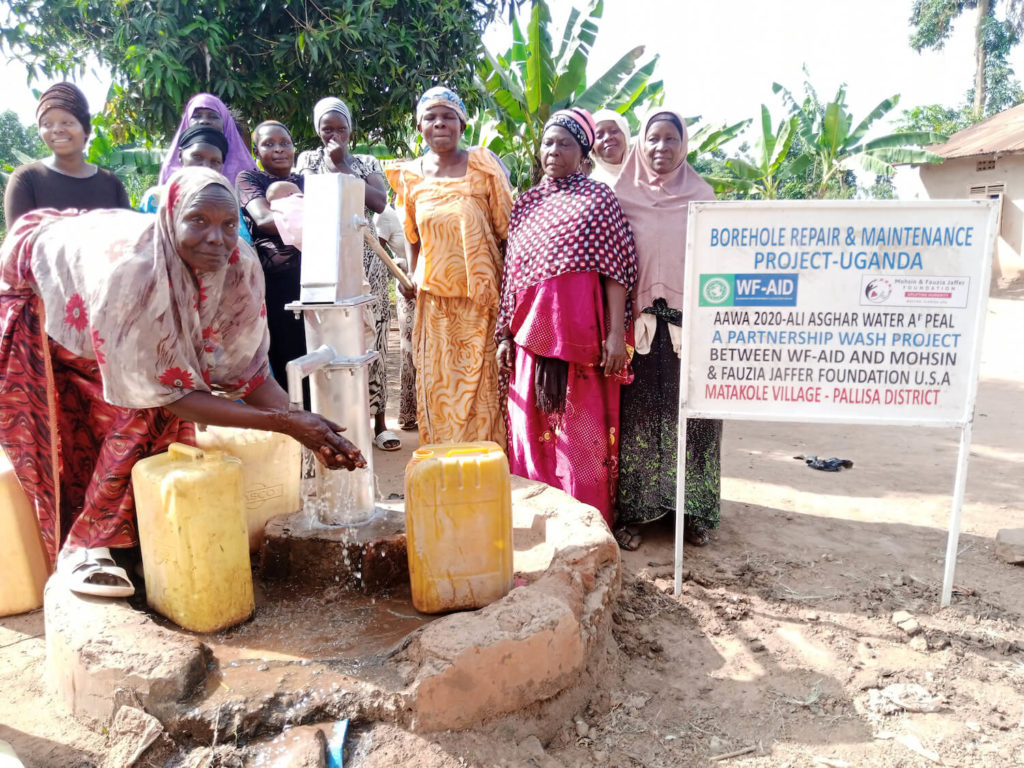
Beneficiary Breakdown of the Boreholes
The above illustrates that 25,591 individuals will benefit from the
repaired and ongoing maintenance of the 30 boreholes.
In this manner, the average cost of the repair and maintenance of each
borehole came to $250, with the total cost of all 30 being $7,500. As an
analysis, this means that access to clean water for an individual residing in
one of these villages cost less than $0.30!

